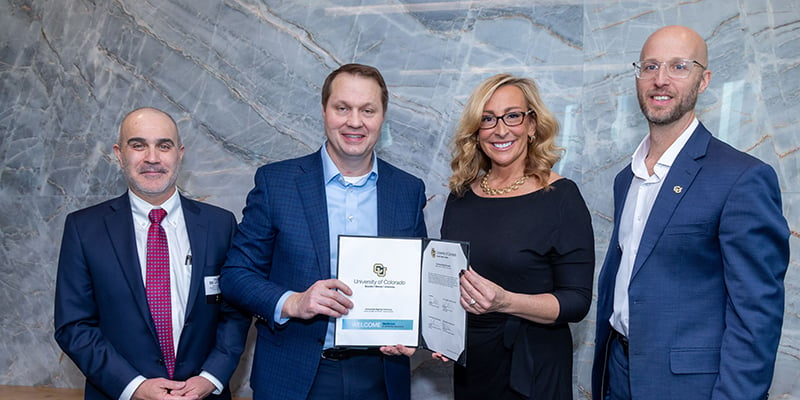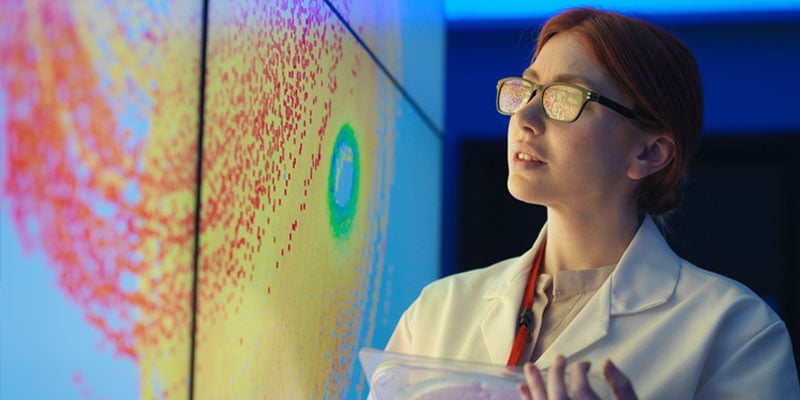In November 2021, the University of Colorado Anschutz Medical Campus was designated a Rare Disease Center of Excellence by the National Organization for Rare Disorders (NORD). CU Anschutz experts are highlighted in the latest edition of Denver magazine 5280 for their work in research and treating rare diseases.
“We’ve been doing rare disease work and research for decades, although it’s been happening in a way that’s not very structured across the campus,” Matthew Taylor, MD, director of adult clinical genetics at the University of Colorado School of Medicine, told 5280. “Now that we have this center designation, we’ll be able to organize all of our rare disease services and be in a better position for patients to connect with us more easily.”
Melissa Haendel, PhD, chief research informatics officer (CRIO) and professor at the CU School of Medicine, described her work on building a research database on rare diseases. Haendel told 5280, “My team and I are essentially putting this mess of data into one place that the doctors and experts at CU Anschutz, and worldwide, can access. We want to make this knowledge easily accessible across the board so that patients are seen quicker, diagnosed quicker, and can get treatment quicker.”
The Gates Center for Regenerative Medicine on the CU Anschutz campus also plays a major role in rare disease research, such as for Ehlers-Danlos syndrome (EDS). The Gates Center has a strong research focus on finding therapies for EDS, including a special care clinic where EDS patients can get individualized treatment. Dennis Roop, PhD, professor of dermatology at the CU School of Medicine and director of the Gates Center, said that a big part of the research involves finding the genetic basis of EDS. “Ultimately, the goal is to develop a stem-cell-based therapy, which, if it doesn’t cure it, would greatly alleviate the symptoms,” Roop told 5280.
Read more about how CU Anschutz experts are fighting rare diseases in the full article in 5280 here.



